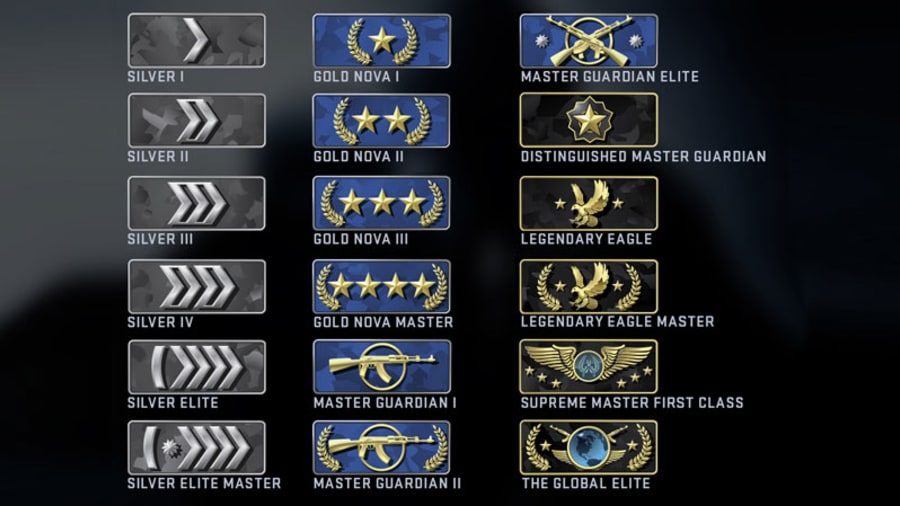Bodrum Escapes: Your Guide to Luxury and Leisure
Explore the best of Bodrum with exclusive insights and tips for an unforgettable experience.
Why CSGO Matchmaking Needs a Seriously Good Time-Out
Discover why CSGO matchmaking is in dire need of a major time-out and what it means for players. Don't miss these eye-opening insights!
Is CSGO Matchmaking Broken? The Case for a Time-Out
Counter-Strike: Global Offensive (CSGO) has been a staple of the competitive gaming scene for years, but players are increasingly questioning if CSGO matchmaking is broken. Various factors contribute to this sentiment, including inconsistent matchmaking ratings, uneven skill distributions, and frustrating player behaviors. For instance, players often find themselves matched against opponents far above or below their skill level, resulting in one-sided games that undermine the core competitive experience. This disparity can lead to decreased player satisfaction, driving many to consider alternative games or modes, ultimately harming the CSGO community.
To address these pressing issues, proponents of a time-out in matchmaking argue for a necessary pause to reevaluate and revamp the system. A time-out could allow developers to implement changes based on community feedback and data analysis, ensuring a more balanced matchmaking experience. This break could focus on enhancing algorithm accuracy to better reflect player skills, introducing penalties for toxic behavior, and refining the ranking system to reduce inconsistencies. Without taking this crucial time to reassess, the question remains: Is CSGO matchmaking broken, or can it be repaired with concerted effort?

Counter-Strike is a highly popular first-person shooter game that emphasizes teamwork and strategy. Players engage in intense battles as either terrorists or counter-terrorists, with the objective of completing specific mission goals. Players can customize their loadouts, including unique skins for weapons and gear such as the tiger strike gloves. The game has a competitive scene that attracts both casual gamers and professional players alike.
Understanding the Importance of Time-Outs in CSGO Matchmaking
Understanding the importance of time-outs in CSGO matchmaking is crucial for enhancing overall gameplay experience. In competitive environments, where every round counts, time-outs serve as a strategic tool that can alter the flow of the match. They allow teams to regroup, analyze the opponent’s tactics, and adjust their strategies accordingly. Furthermore, having the opportunity to discuss game plans during a time-out not only helps in minimizing miscommunication but also boosts the players' morale, encouraging them to refocus and come back stronger.
Moreover, effective use of time-outs can significantly impact a team’s performance. For instance, utilizing a time-out after a series of lost rounds can provide the necessary mental reset for players. It can also disrupt the rhythm of the opposing team, giving the team on the ropes a chance to regain composure. In CSGO matchmaking, where psychological endurance is as important as skill, understanding when and how to call a time-out can be the difference between victory and defeat.
How a Time-Out Could Revolutionize CSGO Matchmaking Quality
In the competitive landscape of CSGO matchmaking, players often face a myriad of challenges, including unbalanced teams and player toxicity. Introducing a structured time-out mechanism could serve as a solution to enhance the overall quality of gameplay. During a time-out, players could engage in a moment of reflection, discuss strategies, or even address behavioral issues that may have arisen during the match. This could lead to more balanced and enjoyable games, as teams could recalibrate and adjust their approaches based on the dynamics observed in the first half of the match.
Moreover, implementing a time-out system *might not only improve team cohesion* but also foster a more respectful gaming environment. Players could utilize this break to calm down after heated exchanges, thereby reducing the likelihood of rage quitting and toxic behavior. The cumulative effect could transform the CSGO matchmaking experience by creating a culture of communication and respect, which is essential in high-stakes environments. Ultimately, prioritizing mental well-being through strategic pauses could revolutionize the matchmaking quality, leading to more rewarding and competitive play.